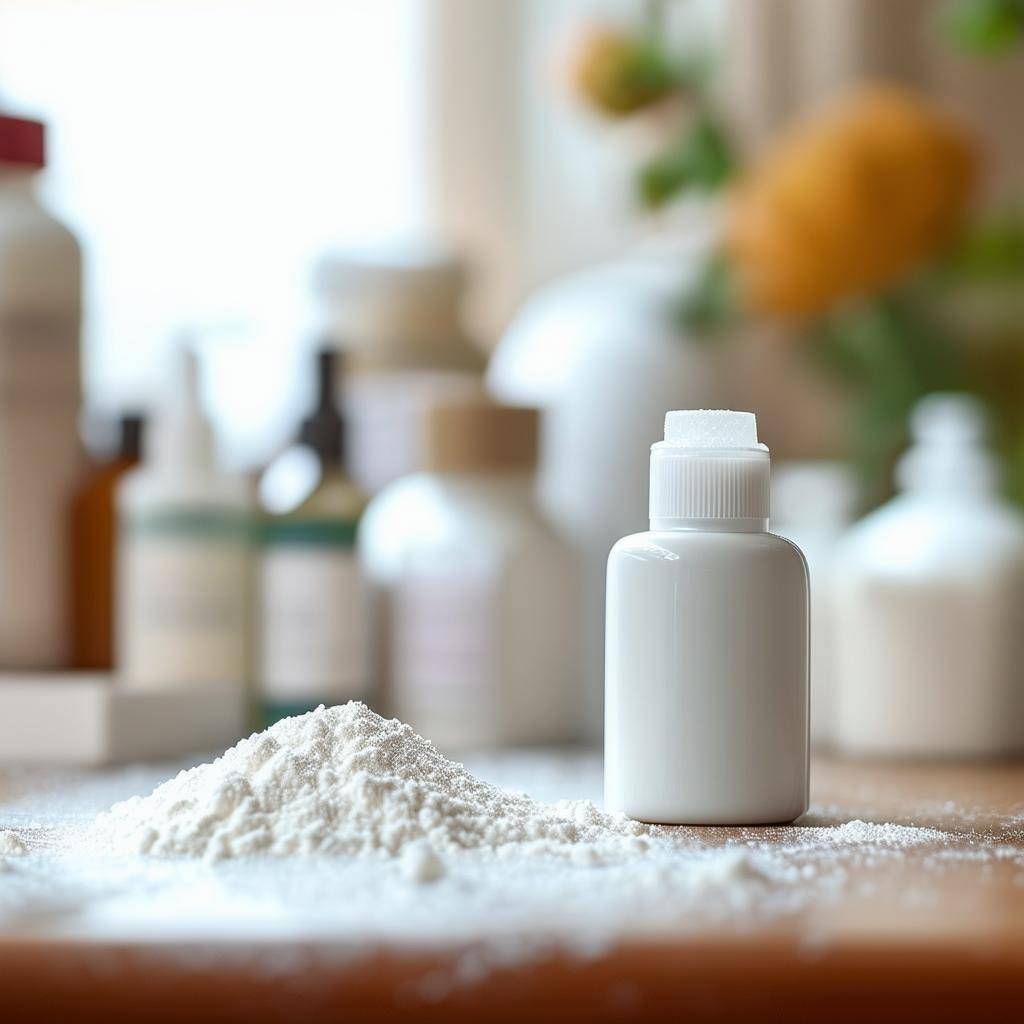Talcum powder, often called baby powder, has been a household staple in many homes for decades. Trusted for its ability to keep skin dry and prevent irritation, many individuals have used talcum powder without a second thought.
But, beneath the soft, familiar texture lies a potential danger many aren’t aware of—the possible link between regular talcum powder use and ovarian cancer.
Here’s what you need to know about the possible link between talcum powder and ovarian cancer.
Understanding Talcum Powder: What Is It?
Talcum powder is a standard household product made from talc, a common ingredient in many cosmetic products.
Talc is a mineral composed mainly of magnesium, silicon, and oxygen. The mineral is known for its moisture-absorbing properties and is a staple in many personal hygiene products, including talcum powder and adult body and facial powders.
Many people use talcum powder to keep skin dry and to prevent rashes. Its soft texture and ability to reduce friction make it a popular choice for use on sensitive skin areas.
Why is Talcum Powder Dangerous
On the surface, talcum powder products seem harmless. However, the danger of regular talcum powder use arises from the potential asbestos contamination in some products. Asbestos is a known human carcinogen and increases the risk of cancer to those exposed.
Talc and asbestos are naturally occurring minerals found in close proximity in the earth. During the mining process, talc can become contaminated with asbestos fibers.
Asbestos exposure is dangerous because it can lead to serious health issues, including various types of cancer, mesothelioma, and other respiratory conditions.
When talcum powder containing asbestos is used near the genital area, it may travel through the reproductive system to the ovaries, possibly causing inflammation and increasing the risk of ovarian cancer.
What is Ovarian Cancer?
Ovarian cancer is a type of cancer that begins in the ovaries, which are the female reproductive glands responsible for producing eggs and hormones. It’s often called “a silent killer” by the medical community because its symptoms can be vague and are frequently mistaken for less severe conditions.
Common symptoms include bloating, pelvic pain, difficulty eating, and frequent urination. Early detection is crucial for a better prognosis, but unfortunately, ovarian cancer is often diagnosed at a later stage when it has already spread.
If you think you may be suffering from ovarian cancer, consult a doctor immediately.
The Link Between Talcum Powder and Ovarian Cancer
The connection between talcum powder and ovarian cancer has been a topic of debate for several decades. Some studies suggest that women who use talcum powder in the genital area are 30% more likely to be diagnosed with ovarian cancer compared to women who don’t use the product.
When talcum powder is used in the genital area, it’s thought that talc particles can travel through the female reproductive system to the ovaries. This causes inflammation and possibly leads to the development of cancerous cells. In some cases, talc particles were found in the ovaries of women who had been diagnosed with ovarian cancer.
Numerous scientific studies have investigated the potential link between talcum powder use and ovarian cancer. Some studies have found a slight increase in the risk of ovarian cancer among women who regularly use talcum powder in the genital area.
For instance, a 2016 study published in the journal Epidemiology found that women who used talcum powder in the genital area had a 33% higher risk of developing ovarian cancer.
While not all studies agree on the level of risk, the potential danger has led to increased scrutiny and concern among healthcare professionals and consumers alike.
Legal Actions and Consumer Awareness
The potential link between talcum powder and ovarian cancer has led to numerous legal actions against manufacturers. Thousands of lawsuits have been filed by women who claim that their ovarian cancer was caused by long-term use of talcum powder. In several high-profile cases, juries have awarded substantial damages to plaintiffs, citing the companies' failure to warn consumers about the potential risks. These legal actions have heightened consumer awareness and prompted many to reconsider their use of talcum powder products.
Preventive Measures and Recommendations
Given the potential risks, it is wise to take preventive measures. Women are advised to limit or avoid the use of talcum powder in the genital area to reduce the risk of ovarian cancer.
Alternative products are available that do not contain talc and are considered safer for personal hygiene. Additionally, staying informed about the latest research and recommendations from health authorities can help consumers make better decisions regarding their use of talcum powder.
Legal Response to Talcum Powder
In response to the research linking talcum powder use to ovarian cancer, several lawsuits have been filed against the manufacturers of a popular talcum powder product: Johnson & Johnson.
Juries have awarded plaintiffs billions in lawsuits against the company.
Are You Eligible to Join the Talcum Powder Lawsuit?
If you or a loved one has been diagnosed with ovarian cancer and have a history of using Johnson & Johnson talcum powder, you may be eligible to join a lawsuit against the manufacturer.
The lawsuit aims to hold the company accountable for failing to warn consumers about the potential risks associated with their products.
To determine your eligibility, consult with the Legal Injury Advocates for a free case evaluation. Legal Injury Advocates, along with our co-counsel, can help you determine your eligibility, guide you through the legal process, and work to secure any compensation you may qualify for.
Contact us for a free initial case evaluation to explore your options and take the first step in your journey to justice.

